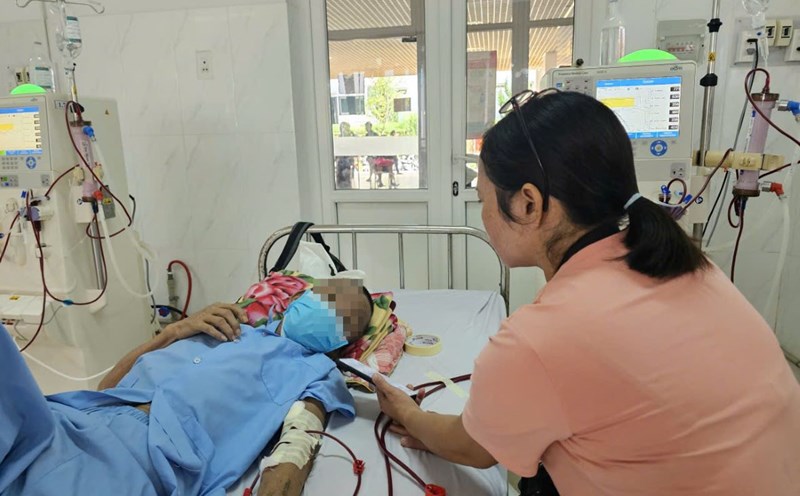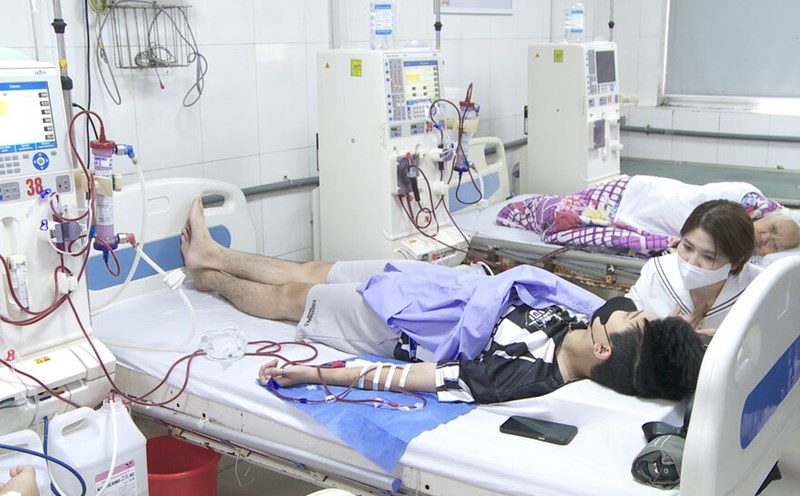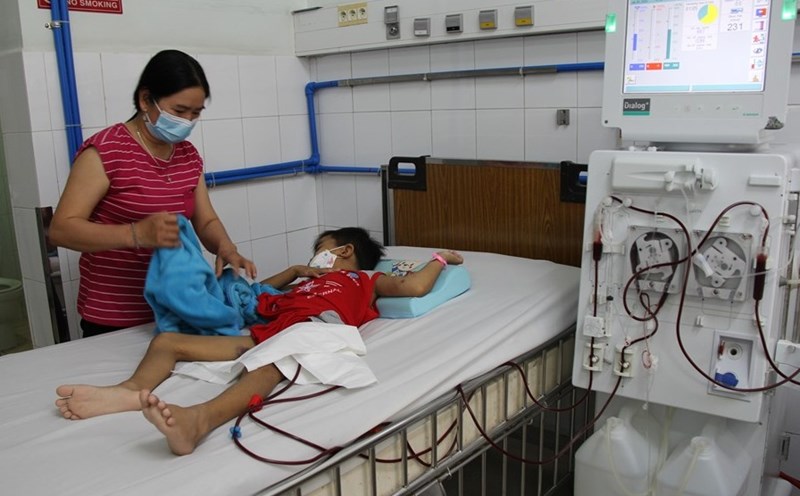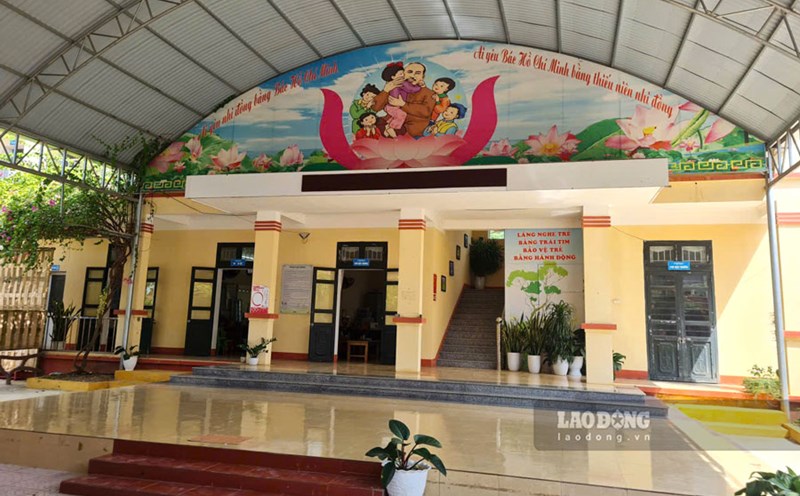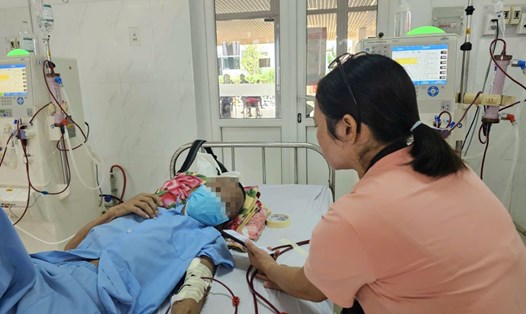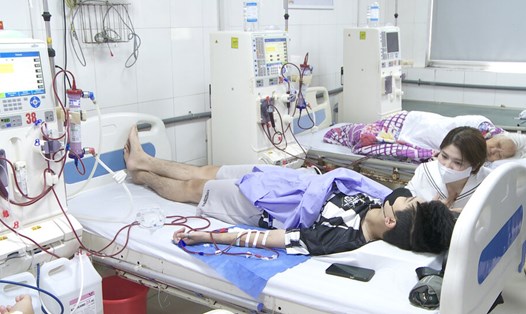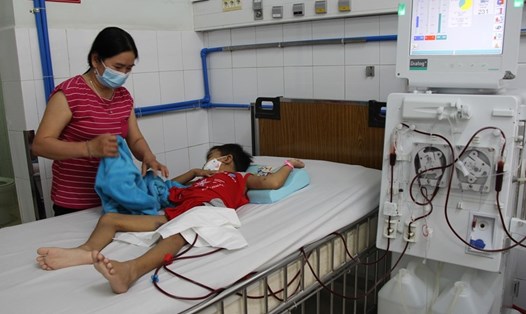Previously, chronic kidney failure was considered a disease of the elderly. But in recent years, doctors have recorded an worrying trend: kidney disease is getting "younger". Many people in their twenties have had to stick to a blood filter - something that was very rare a decade ago.
According to statistics from the Ministry of Health, Vietnam currently has more than 10 million people with chronic kidney disease, of which about 26,000 people have entered the final stage, needing regular blood filtration or kidney transplantation to maintain survival. Notably, the number of young patients is increasing rapidly.
At the Nephrology - Urinary and Blood Loss Center (Bach Mai Hospital), 30-40 new cases are recorded each day, including many cases under 30 years old, even only 15-16 years old, in the final stage.
As in the case of his friend's son above, the young man after graduating is a programmer, working an average of 8-10 hours a day, often staying up late, eating whole-scale instant noodles and carbonated soft drinks.
In early 2025, my child said he felt tired, lost weight quickly, and had dark skin. When I went to the doctor, the doctor said my child had end-stage chronic kidney failure. Since then, my child has had to have a blood filter 3 times a week, every 4 hours. The future is unknown, the friend shared.
A healthy young man, at his peak, suddenly became a patient with chronic kidney failure - it was not only a personal tragedy but also a warning bell for the whole generation.
Chronic kidney failure is a condition of prolonged impaired kidney function, causing the body to no longer be able to filter out toxins, balance water and electrolytes. The disease progresses silently, and can last for many years without obvious symptoms.
Signs such as fatigue, mild edema, frequent urination, loss of appetite... are often taken lightly or blamed for stress and lack of sleep. By the time of discovery, many people were in the late stages and could no longer be treated for conservation.
Behind each case is subjectivity and a series of unhealthy habits: Late sleep, lack of exercise, eating and drinking less water, alcohol abuse, painkillers, functional foods, fast food... In the technology era, young people easily "forget" their bodies in the cycle of filming work and social networks - and then pay the price with health.
It is worth mentioning that most causes of kidney disease can be prevented: Control blood pressure, eat lightly, do not abuse medication, drink enough water, maintain a reasonable weight and have regular health check-ups. But in reality, those simple things are mermaids for many young people.
The cost of dialysis each year can be up to hundreds of millions of VND, beyond the means of many families. Not only losing money, the patient also faces mental obsession and lifelong burden. That is why health experts call for changes from awareness: do not disregard the smallest signs of the body, because the kidneys do not know how to speak, but the consequences of "late listening" are that the whole life depends on machines.
A healthy generation is the foundation of the country's future. But if we continue to live quickly, eat hastily, work and forget to rest, the "filter" in the body will soon fall. This is also a warning about the lifestyle of a part of the young generation today.

